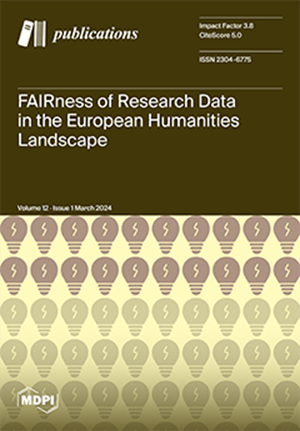Benefits of Citizen Science for Libraries
IF 4.6
Q1 INFORMATION SCIENCE & LIBRARY SCIENCE
引用次数: 0
Abstract
Participating in collaborative scientific research through citizen science, a component of open science, holds significance for both citizen scientists and professional researchers. Yet, the advantages for those orchestrating citizen science initiatives are often overlooked. Organizers encompass a diverse range, including governmental entities, non-governmental organizations, corporations, universities, and institutions like libraries. For libraries, citizen science holds importance by fostering heightened civic and research interests, promoting scientific publishing, and contributing to overall scientific progress. This paper aims to provide a comprehensive understanding of the specific ways in which citizen science can benefit libraries and how libraries can effectively utilize citizen science to achieve their goals. The paper is based on a systematic review of peer-reviewed articles that discuss the direct benefits of citizen science on libraries. A list of the main benefits of citizen science for libraries has been compiled from the literature. Additionally, the reasons why it is crucial for libraries to communicate the benefits of citizen science for their operations have been highlighted, particularly in terms of encouraging other libraries to actively engage in citizen science projects.公民科学为图书馆带来的益处
公民科学是开放科学的一个组成部分,通过公民科学参与合作性科学研究对公民科学家和专业研究人员都具有重要意义。然而,公民科学活动组织者的优势却常常被忽视。组织者范围广泛,包括政府实体、非政府组织、企业、大学和图书馆等机构。对图书馆而言,公民科学的重要意义在于提高公民和研究兴趣,促进科学出版,推动整体科学进步。本文旨在全面介绍公民科学造福图书馆的具体方式,以及图书馆如何有效利用公民科学来实现其目标。本文基于对同行评议文章的系统回顾,这些文章讨论了公民科学对图书馆的直接益处。从文献中整理出了公民科学对图书馆的主要益处。此外,本文还强调了图书馆宣传公民科学为其业务带来的益处至关重要的原因,特别是在鼓励其他图书馆积极参与公民科学项目方面。
本文章由计算机程序翻译,如有差异,请以英文原文为准。
求助全文
约1分钟内获得全文
求助全文
来源期刊

Publications
Social Sciences-Library and Information Sciences
CiteScore
6.50
自引率
1.90%
发文量
40
审稿时长
11 weeks
期刊介绍:
The scope of Publications includes: Theory and practice of scholarly communication Digitisation and innovations in scholarly publishing technologies Metadata, infrastructure, and linking the scholarly record Publishing policies and editorial/peer-review workflows Financial models for scholarly publishing Copyright, licensing and legal issues in publishing Research integrity and publication ethics Issues and best practices in the publication of non-traditional research outputs (e.g., data, software/code, protocols, data management plans, grant proposals, etc.) Issues in the transition to open access and open science Inclusion and participation of traditionally excluded actors Language issues in publication processes and products Traditional and alternative models of peer review Traditional and alternative means of assessment and evaluation of research and its impact, including bibliometrics and scientometrics The place of research libraries, scholarly societies, funders and others in scholarly communication.
 求助内容:
求助内容: 应助结果提醒方式:
应助结果提醒方式:


